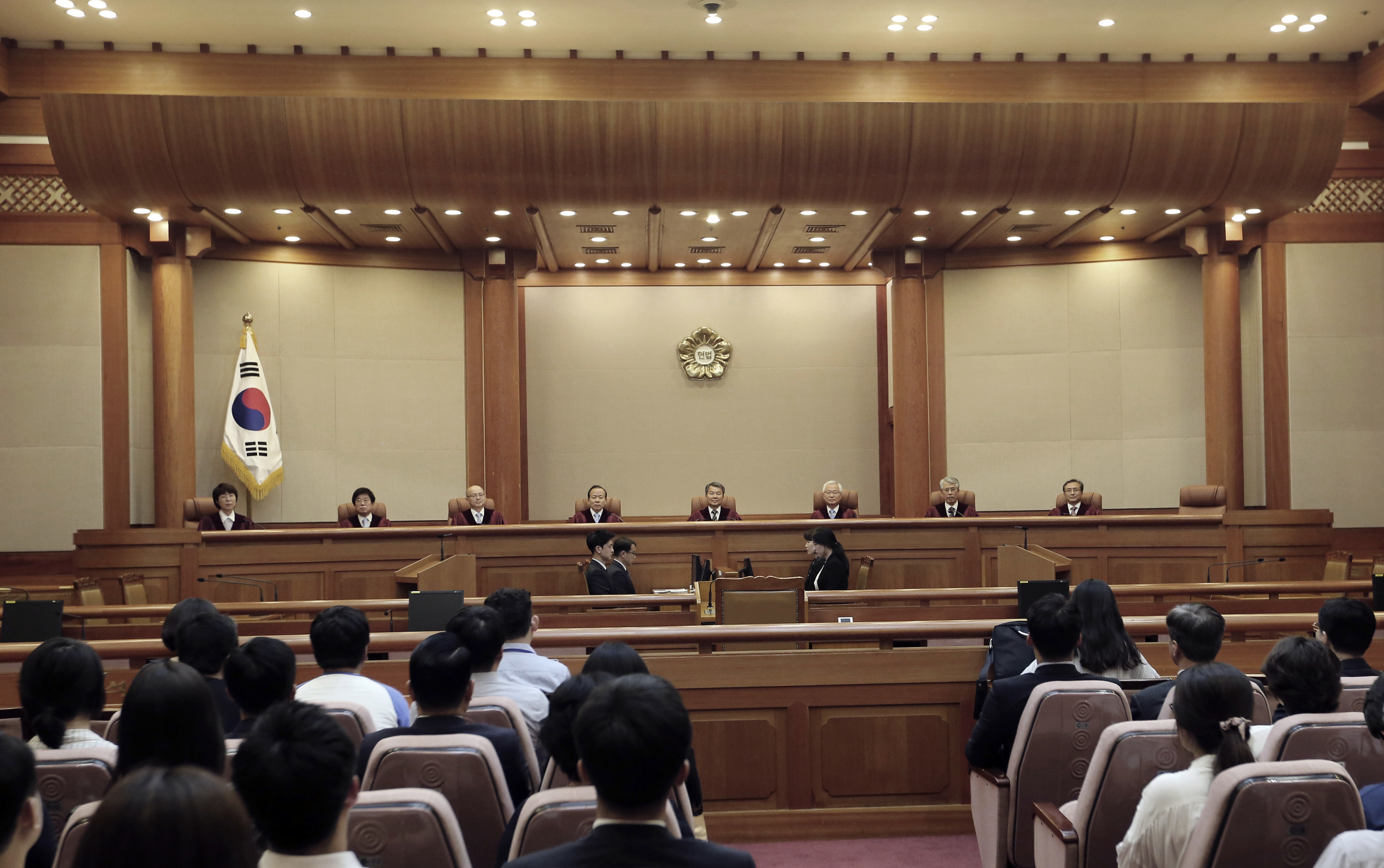
Constitutional justices give a verdict on conscientious objections at the Constitutional Court in Seoul, South Korea, Thursday, June 28, 2018. South Korea’s Constitutional Court has ruled that the country must allow alternative social service for people who conscientiously object to military service, which is currently mandatory for able-bodied males. (AP Photo/Ahn Young-joon).
SEOUL, South Korea (AP) — South Korea’s Constitutional Court ruled Thursday that the country must allow alternative social service for people who conscientiously object to military service, which is currently mandatory for able-bodied males.
The ruling requires the government to introduce alternative service by the end of 2019. It was hailed by activists as a breakthrough that advances individual rights and freedom of thought.
It is also likely to trigger a heated debate in a country which maintains a huge military to counter North Korea threats, and where many have accused conscious objectors of attempting to evade the draft.
Hundreds of conscious objectors are imprisoned in South Korea each year, serving terms of 18 months or longer. Most are Jehovah’s Witnesses who refuse to serve in the military on religious grounds.
The court said the current law, which does not permit alternative service, is unconstitutional because it infringes excessively on individual rights.
The court acknowledged that conscientious objectors experience “enormous disadvantages” in addition to their prison terms, including restrictions in public sector employment, maintaining business licenses and social stigma.
Still, the current regulations will remain in effect as long as Dec. 31, 2019, the deadline issued by the court for the government to amend the law.
South Korea’s Defense Ministry said it will introduce a policy on alternative service as soon as possible. In 2007 it had considered allowing conscientious objectors to perform humanitarian alternatives such as working in special hospitals and taking care of disabled people and senior citizens suffering from dementia. However, it dropped the idea in 2008, citing strong public objections. /muf